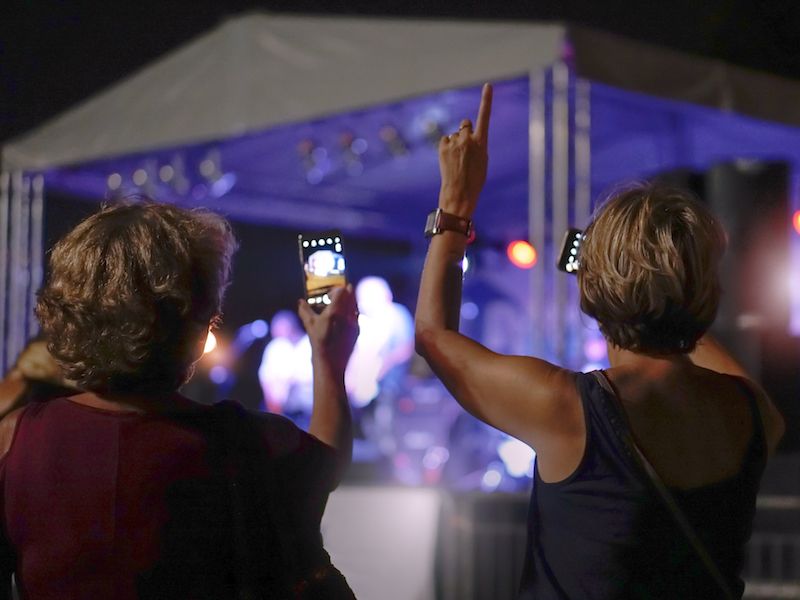
Summer has finally arrived, and it’s time for all that fun we’ve been getting excited about: swimming in the pool, visiting the beach, and a few activities that may harm your hearing. That’s right, summer has a lot of unseen risks to your hearing, either from loud noises or the external situations you may find yourself in. Any sounds over 80 decibels can damage your ears, while swimming in pools or other bodies of water can bring about permanent hearing loss. You have to take precautions and be aware of your environment so that you can protect your hearing this summer season. Keep on reading to discover the summer’s 6 hidden hazards to your ears.
At Concerts, Wear Hearing Protection
Whether you’re at an indoor arena or an outside concert venue you still should use hearing protection during concerts. 90 decibels is inside the danger zone for ear damage and live music reaches this volume even when you’re at outdoor venues. So regardless of whether you’re going to outside or inside shows, it’s a practical plan to wear earplugs. Earplugs reduce the sound while still enabling you to hear and get into the music. If you’re going to a concert with young children, consider buying them a heavy duty set of earmuffs since their hearing is much more sensitive than those of adults.
Fireworks Are More Than Just Loud
Honestly, there are a lot of reasons to avoid fireworks in the summer. It’s not exclusively the 4th of July shows that are professional that can harm your hearing, we mean the backyard fireworks which every summer season cause hundreds of accidents. Backyard fireworks achieve volume levels of nearly 155 which can injure your ears on top of causing hand injuries, blindness and home fires. This 4th of July, leave the fireworks to the professionals and enjoy the show from a protected and sound distance.
Loss of Hearing Can be Caused by Lawnmowers
If you care about your yard, your edger, trimmer, and mower are your best friends. But the muffled feeling in your ears is an indication that your ears have taken damage. That’s because the lawn tools, which are constantly loud, have a slow and steady impact on your hearing. You’ve probably noticed landscapers using some kind of hearing protection, next time you do yard work with noisy power equipment, you should take a hint from them and wear earmuffs or earplugs.
Here’s How to Safeguard Your Ears When You Take a Swim
Huge numbers of people suffer from swimmer’s ear every summer, which happens when bacteria-packed water becomes trapped inside your ear canal. Swelling and painful earaches result when the bacteria infects the ear. It’s not exclusively lakes and rivers that have these bacteria, they can also be found in pools and hot tubs if they are not cleaned and treated properly. No permanent damage should occur if you have your ears checked out by a hearing professional. To counter swimmer’s ear, however, you should wear specialized swimming earplugs in the pool and have your pool water tested to be certain the chemical balance is safe.
Water Sports And Boats
Summer is a breath of freedom for the people who love to be in a boat on the water, taking in the fresh lake breeze or the salty air of the ocean. But, boat and jet ski engines can be noisy,they can get up to more than 100 decibels. Sustained exposure to that kind of noise for around 15 minutes can bring about irreparable hearing impairment. In this case also, using a set of throw away foam earplugs is a smart strategy.
Your Ears Can be Injured by Car Races
It doesn’t matter what kind of auto racing you like, stock cars, midgets, motorcycles, drag racing, Formula 1. If you go to a lot of auto-races this summer, they all present a risk. It’s estimated that sound levels can go beyond 120 decibels at some races, which is definitely inside the danger zone for hearing injury. As pointed out earlier, your children should use muffs while you should wear earplugs at least. Because you might not get to appreciate the sounds of any races in the future if you don’t.